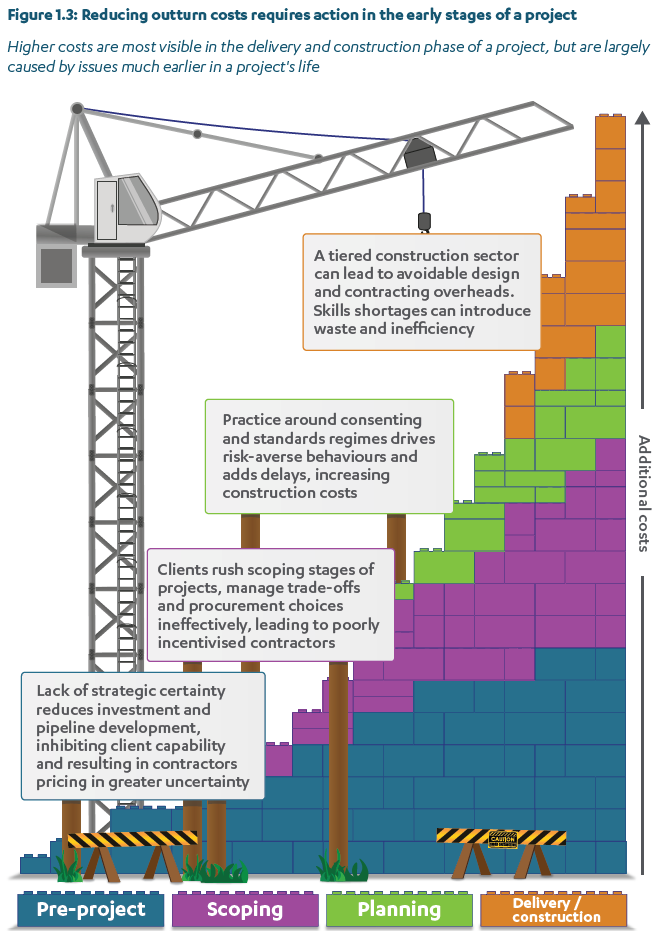18
Oct 2024
- BY Kevin Barry BSc(Hons) MRICS
- POSTED IN Latest News
- WITH 0 COMMENTS
- PERMALINK
- STANDARD POST TYPE

Labour Government are keen to undertake infrastructure works during their 5 year term. Problem is delivery. Here is a summary of the key points from the National Infrastructure Commission report into UK construction, from a quantity surveying perspective:
- Cost challenges: The report highlights that infrastructure costs in the UK are too high and have been for decades. There are opportunities to reduce outturn costs by 10-25% across a portfolio of enhancement projects.
- Early stage focus: Over 50% of available cost reductions require action before delivery stages. Getting projects right in early phases is critical to prevent cost increases later.
- Key cost drivers:
- Lack of clear strategic direction and long-term funding
- Client and sponsorship challenges (e.g. overlapping roles, skills shortages)
- Inefficient consenting and compliance processes
- Constrained and fragmented supply chain
- Client capability: The report emphasizes the importance of effective clients in managing project risks, trade-offs, and procurement. Public sector faces challenges in recruiting and retaining staff with appropriate expertise.
- Procurement: Clients need skills to understand the market, structure contracts effectively, and navigate risk allocation. Misunderstandings in procurement can drive up costs.
- Supply chain: The UK construction sector is highly fragmented compared to international peers. This can create inefficiencies and additional risks.
- Productivity: Labor productivity in construction has stagnated over the last 15 years. Lack of a clear project pipeline reduces incentives for firms to invest in productivity improvements.
- Standards and compliance: While effective standards can promote efficient delivery, rapidly changing or unclear standards can add significant costs to projects.
- Planning and consenting: Delays and uncertainties in the planning system are adding costs to projects, both directly and through risk-averse behaviors.
- Opportunities for improvement: The report suggests that addressing these systemic issues could lead to significant cost savings across infrastructure projects.
From a QS perspective, this report underscores the need for early involvement in projects, strong cost management throughout the project lifecycle, and a systemic approach to addressing cost drivers in infrastructure delivery.
